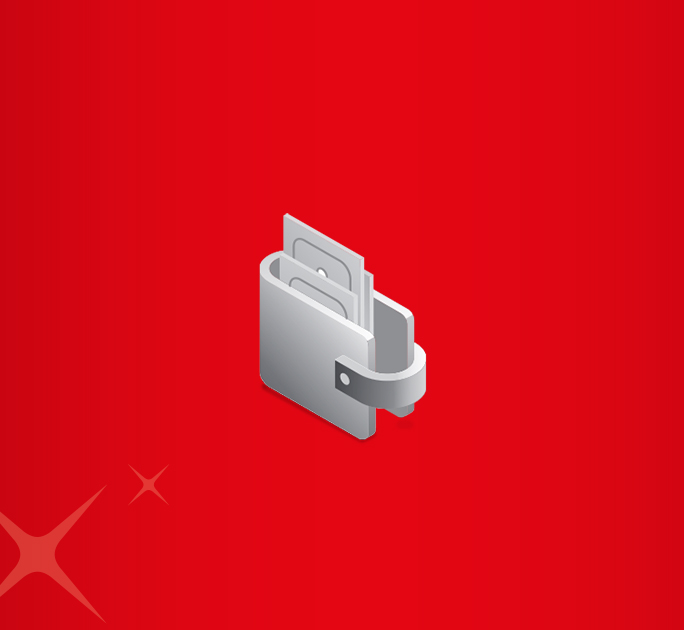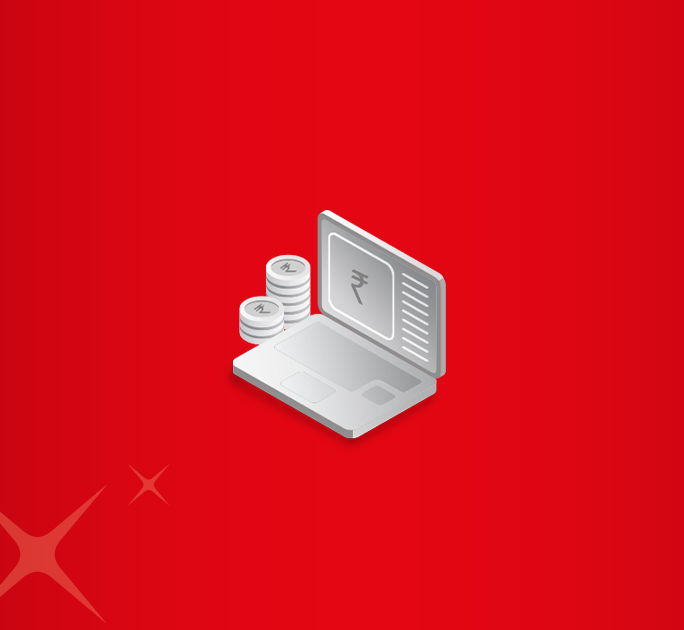- Save
- Invest
- Borrow
- Pay
- More
- NRI Banking
- Customer Services

Union Budget 2025 Highlights: Key Takeaways
Finance Minister Nirmala Sitharaman has delivered the Union Budget 2025 in the Lok Sabha, marking her eighth consecutive budget presentation. The Union Budget for the year 2025-26 prioritises fiscal policies, tax reforms, industrial growth, and social initiatives. This article provides a detailed look at the budget highlights and how they might impact your financial landscape this year.
Main Highlights of Budget 2025
The Finance Minister has introduced several key measures in this year’s budget. Here are the essential points:
- Income Tax Adjustments – Introduction of new tax slabs and increased deductions for certain salaried taxpayers.
- Changes in Prices – Exemptions on certain life-saving drugs and medicines.
- Housing Benefits – Increased TDS limit on rental income and additional tax relief for certain categories of tenants.
- Support for MSMEs and Startups – Enhanced funding options and credit facilities for medium and small businesses.
- Renewable Energy Growth – Continued push for investments in solar power, electric vehicles (EVs), and clean energy projects, as the country steps up efforts to make a transition to clean energy.
- Boosting Foreign Investment: The government plans to revamp the model bilateral investment treaty with the aim of enhancing foreign investment.
- Enhanced Regional Connectivity: The revamped UDAN scheme will be launched to connect 120 new destinations, aiming to serve 4 crore passengers over the next decade.
These measures are part of the budget 2025 highlights that directly affect your savings and expenditures.
Income Tax Changes: More Savings for the Middle Class
- The income tax rebate for individuals has been raised to those earning up to ₹12 lakh under the new tax regime, allowing middle-class families to save more.
- A higher standard deduction for salaried individuals is a welcome change.
- TDS exemptions have been increased to benefit lower-income taxpayers by reducing unnecessary tax deductions.
- Changes in Tax Deducted at Source (TDS) include a threshold of ₹1 lakh for senior citizens on interest income. These adjustments are designed to reduce the tax burden on individuals and streamline tax compliance.
Understanding the New Income Tax Slabs
According to today's budget news, the revised income tax slabs announced by the Finance Minister are as follows:
- Up to INR 4 lakh – No Tax
- INR 4 lakh to INR 8 lakh – 5%
- INR 8 lakh to INR 12 lakh – 10%
- INR 12 lakh to INR 16 lakh – 15%
- INR 16 lakh to INR 20 lakh – 20%
- INR 20 lakh to INR 24 lakh – 25%
- INR 24 lakh and above – 30%
New Income Tax Bill
Nirmala Sitharaman has also announced a new income tax bill set to be introduced in the coming week. This revised bill is expected to simplify the tax structure for taxpayers and administrators, reducing disputes and providing a more efficient process.
What’s Cheaper, What’s More Expensive?
Items with Reduced Prices
- Life-saving Drugs: The government has fully exempted 36 essential medications for cancer and chronic diseases from basic customs duties.
- Electronics: The Basic Customs Duty (BCD) for open cells and other electronic components has been reduced to 5%.
- Electric Vehicles (EVs): Various components used in the production of EV batteries and mobile phone battery manufacturing will now be exempt from customs duties.
- Frozen Fish Paste (Surimi): The customs duty on Frozen Fish Paste will drop from 30% to 5%, encouraging the manufacturing and export of related products.
Items with Increased Prices
- Flat Panel Displays: The Basic Customs Duty (BCD) on flat-panel displays, including those used in televisions and mobile phones, has been increased from 10% to 20%.
- Social Welfare Surcharge: The exemption for 82 tariff lines currently subject to cess has been removed.
Housing & Urban Development: Is Buying a Home Now Easier?
- Tax Relief for Multiple Properties: Homebuyers can now claim tax benefits on two self-occupied homes, whereas previously, it was limited to only one property.
- Tax Deducted at Source - The TDS exemption limit on rental income has been raised from INR 2.4 lakh to INR 6 lakh annually. This will reduce the number of transactions liable to TDS, thus benefiting small taxpayers receiving small payments. Budget also outlined plans to simplify the TDS framework by reducing the number of rates and raising threshold amounts about which TDS is deductible. Further, threshold amounts for tax deduction will be increased for better clarity and uniformity.
- The Urban Challenge Fund, with an allocation of ₹10,000 crore for FY 2025-26 aims to enhance water and sanitation infrastructure, driving the transformation of cities into vibrant economic centers.
Job Creation & MSME Growth: More Support for Entrepreneurs
- Startup Funding: An additional INR 10,000 crore will be allocated for startup incubation programs, encouraging innovation and growth.
- MSME and Start- Ups Credit Expansion: Enhanced credit guarantee cover will be provided for MSMEs and start-ups, facilitating easier access to finance and encouraging entrepreneurial ventures. This reform is expected to stimulate recovery in MSMEs.
- Support for Gig Workers: Health insurance coverage will be extended to gig workers under the Pradhan Mantri Jan Arogya (PM-JAY) scheme. Additionally, gig workers will be given identity cards and registered on the e-Shram portal to access better welfare benefits.
- Research and Innovation: A ₹20,000 crore initiative for private-sector driven research and innovation has been announced. This investment aims to support technological advancements and foster a culture of innovation, driving economic growth and competitiveness.
- Revised MSME Classification: The investment limit for MSME classification will be increased by 2.5 times, and turnover limits will be doubled, allowing more businesses to benefit from MSME-specific incentives and support.
- Boost for Footwear & Leather Industry: A new scheme dedicated to the footwear and leather sector aims to create 22 lakh jobs, generate ₹4 lakh crore in revenue, and drive exports beyond ₹1.1 lakh crore.
- Boost for the Toys Industry: A dedicated scheme will be launched to position India as a global manufacturing hub for high-quality, made-in-India toys.
Education & Skill Development: Improving Learning Opportunities
- Atal Tinkering Labs: The government will set up 50,000 labs in government schools over the next five years to promote innovation in science and technology.
- Skill Development Initiatives: Five National Centres of Excellence will be established for skilling programs in emerging industries like AI, robotics, and renewable energy.
- Expansion of IITs & AI Centres: Additional infrastructure in IITs and a INR 500 crore investment in AI for education will help ensure that Indian students remain globally competitive.
- Scholarships & Financial Aid: More funding for scholarships and low-interest loans will be available to support students from economically disadvantaged backgrounds.
- Relief for Education Loans: The government proposes to remove TCS on education loans up to ₹10 lakh from specified financial institutions, easing the financial burden on students.
Global Manufacturing Initiatives
Dedicated schemes for the toys and footwear sectors will make India a global manufacturing hub. These initiatives are projected to create substantial employment opportunities and boost exports, contributing to the country's economic prosperity.
Insurance FDI
The foreign direct investment (FDI) limit in the insurance sector will be increased from 74% to 100%. This move is expected to attract more foreign investments, enhancing the sector's growth and stability.
Conclusion
The Union Budget 2025 is designed to empower middle-class families, students, entrepreneurs, and MSMEs. It aims to drive growth, create jobs, and enhance access to education and housing. By focusing on tax relief, affordable housing, job opportunities, and digital innovation, the budget sets the stage for a stronger, digitally advanced, and economically resilient India. With a fiscal deficit target of 4.4% of GDP, the government demonstrates its commitment to fiscal discipline while fostering economic growth and development.
*Disclaimer: This article is for information purposes only. We recommend you get in touch with your income tax advisor or CA for expert advice.











